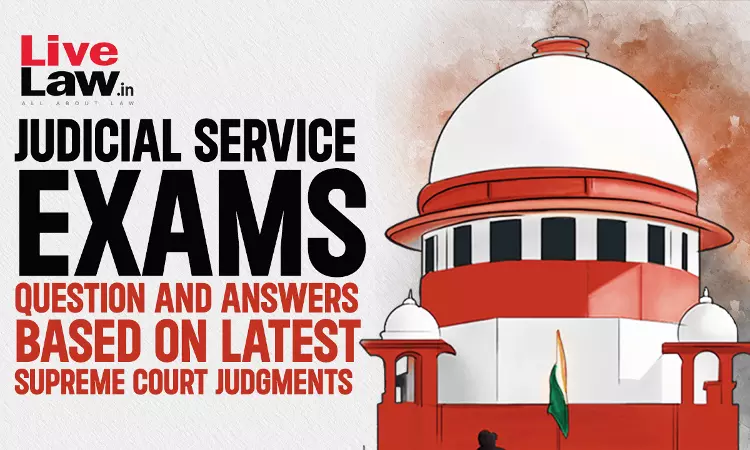Important MCQ's Based On Latest Supreme Court Judgments For Law Examinations
Yash Mittal
25 Aug 2024 11:35 AM IST

Next Story
25 Aug 2024 11:35 AM IST
Q 1. The Litigant's advocate had withdrawn the application, which was preferred before the Court, without intimating the litigant. The litigant came to know about such withdrawal only after a year. Thereafter, he sought to prefer an application along with an application seeking condonation of delay of 425 days, however, the application was rejected by the Court. Decide.a. The Court has...
